In the lost battle, borne down by the flying. Where mingles war's rattle With groans of the dying
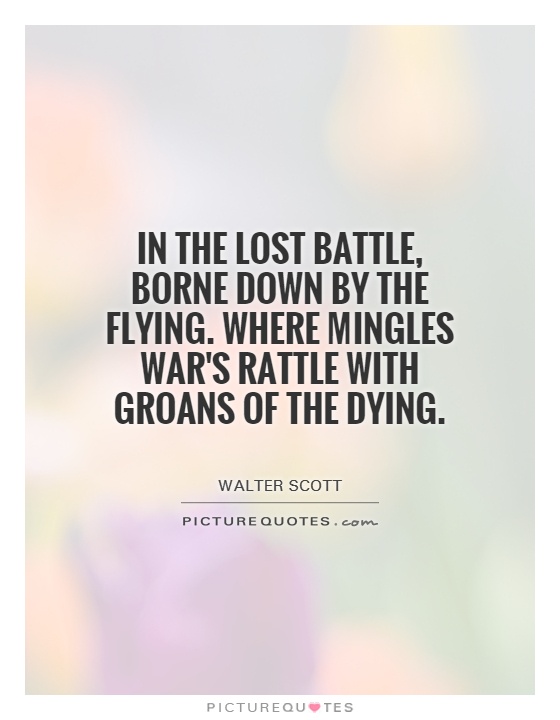
In the lost battle, borne down by the flying. Where mingles war's rattle With groans of the dying
Walter Scott, a renowned Scottish poet and novelist, was known for his vivid descriptions of battles and the horrors of war. In his works, he often depicted the chaos and devastation that accompanied conflicts, capturing the true essence of the battlefield. One of his most famous lines, "In the lost battle, borne down by the flying. Where mingles war's rattle With groans of the dying," perfectly encapsulates the grim reality of war and the toll it takes on those involved.Scott's words evoke a sense of despair and hopelessness, painting a picture of a battlefield in disarray. The image of soldiers retreating in defeat, accompanied by the sounds of war and the cries of the wounded and dying, creates a haunting scene that stays with the reader long after the words have been read. Scott's ability to convey the brutality and tragedy of war through his poetry is a testament to his skill as a writer and his deep understanding of human suffering.
The phrase "In the lost battle, borne down by the flying" speaks to the chaos and confusion that often reigns on the battlefield. In the heat of battle, soldiers are forced to make split-second decisions that can mean the difference between life and death. The image of being "borne down by the flying" suggests a sense of being overwhelmed and outnumbered, a feeling that many soldiers throughout history have experienced in the midst of combat.
The line "Where mingles war's rattle With groans of the dying" further emphasizes the brutality of war and the toll it takes on those involved. The clashing of swords and the sounds of gunfire are juxtaposed with the cries of the wounded and dying, creating a cacophony of noise that is both terrifying and heartbreaking. Scott's use of imagery and language in this line is powerful and evocative, drawing the reader into the heart of the battle and forcing them to confront the harsh realities of war.
Overall, Walter Scott's depiction of war in his poetry is both poignant and thought-provoking. Through his words, he captures the true horror of conflict and the impact it has on those who are caught in its grip. The line "In the lost battle, borne down by the flying. Where mingles war's rattle With groans of the dying" is a stark reminder of the human cost of war and a testament to Scott's talent as a poet and storyteller.


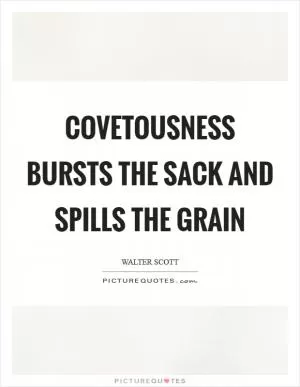

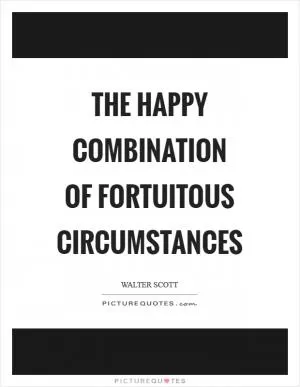




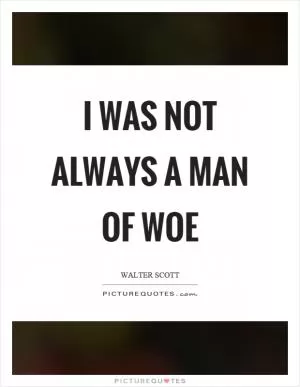
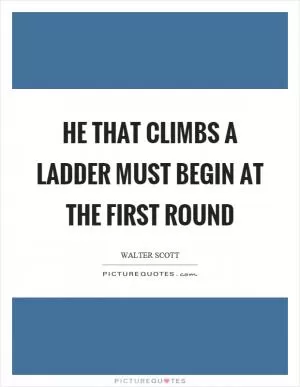

 Friendship Quotes
Friendship Quotes Love Quotes
Love Quotes Life Quotes
Life Quotes Funny Quotes
Funny Quotes Motivational Quotes
Motivational Quotes Inspirational Quotes
Inspirational Quotes